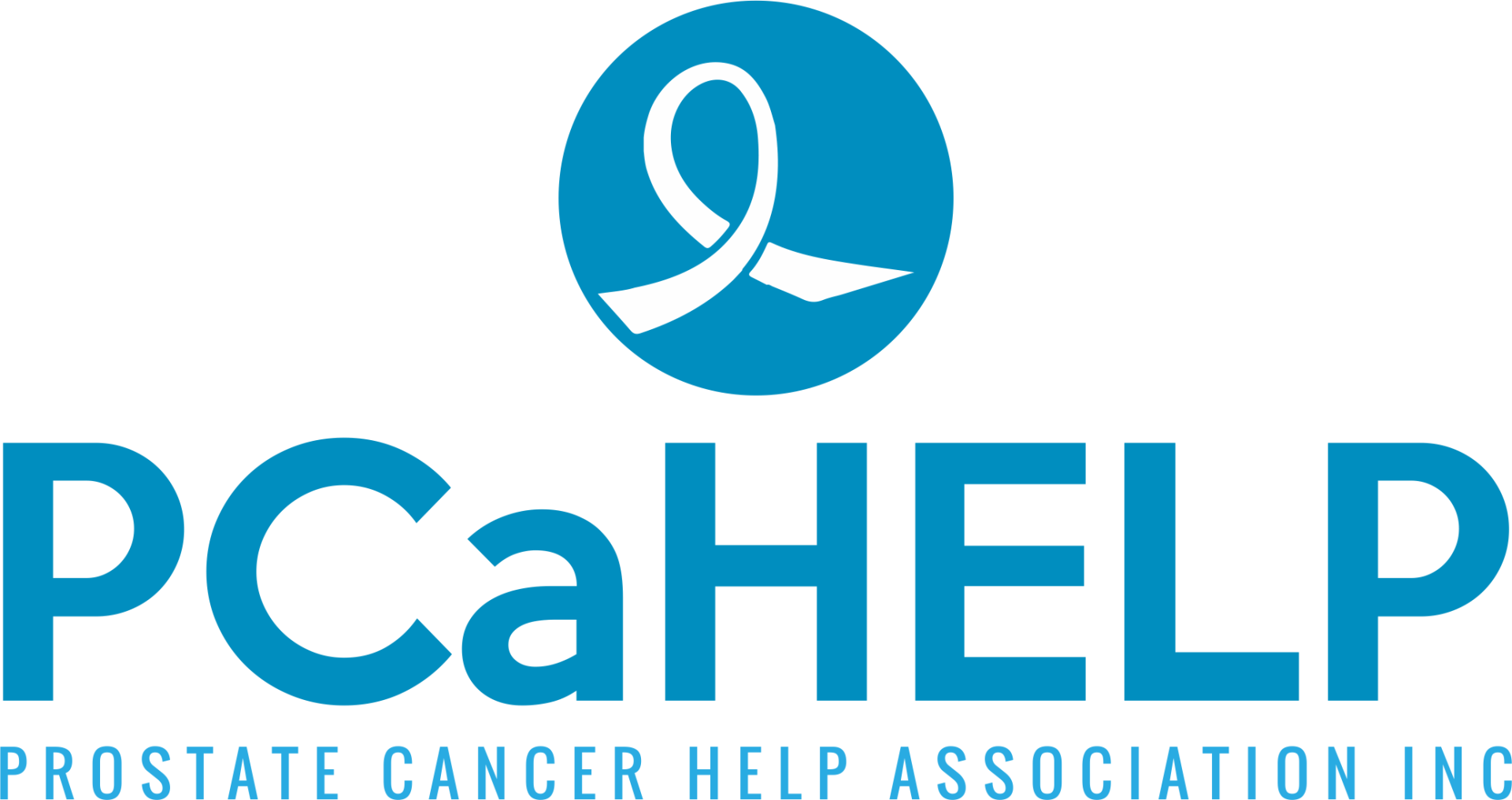Your prostate cancer diagnosis
Being diagnosed with any cancer is a life changing event. The diagnosis, no matter how well your specialist presents it, can be devastating. Men by their very nature think of themselves as infallible. A million questions cross your mind. What went wrong? How can this be as I’m fit and healthy and had no symptoms (often there are none)? What are my treatment options? Will I die? How will this change my life?
Usually your specialist will go on to tell you what your options are and how to best proceed, but your mind may be elsewhere.
A good tip is to take someone with you who can take notes, or if you don’t have anyone to go with, ask the doctor if you can record what they say and listen to it again later.
Some men on receiving a diagnosis are angry, some are anxious, some are depressed, some are infuriated, some are despondent, some are afraid, and some even lose hope. These are all natural feelings which you need to understand and come to terms with. The good news is that there is plenty of help available – all you have to do is reach out.
Coping with your diagnosis
Firstly you should get as many facts as you can
You need basic facts and useful information about your diagnosis so you can make informed decisions about your treatment and ongoing care.
Do some research and make a list of the questions you want answered so you can ask your specialist at your next appointment.
These may include:
- Is your prostate cancer localised or advanced?
- If it is advanced, where has it spread to?
- Can my prostate cancer be treated?
- What is the chance that my prostate cancer can be cured?
- How will it affect my longevity?
- What other tests or procedures do I need?
- What are my treatment options?
- How will the treatment benefit me?
- What can I expect during treatment?
- What are the side effects of the treatment?
- What can I do to prevent my cancer from recurring?
- How likely are my children or other family members to get prostate cancer?
- How quickly do I need to make treatment decisions?
Be careful when gathering facts as the internet, while often a great source of information, also contains much misinformation and biased opinions. Your internet search may even offer miracle cures which you may want to cling to. Remember the old adage “If it’s sounds too good to be true, it probably isn’t”. A support group can be a great source of information.
Talk openly and honestly with those who matter most to you and can help
Maintain honest, open, two-way communication with your loved ones, friends, doctors and other health professionals after your prostate cancer diagnosis. You may feel particularly isolated if people try to protect you from bad news or if you try to put up a strong front.
If you and others express emotions honestly, you can all gain strength from each other.
A support group will encourage you to communicate your concerns. It can be a great sounding board and offer good advice on how to best discuss your worries.
Anticipate possible side effects and physical changes
After your prostate cancer diagnosis and before you begin treatment is the best time to plan for changes to your lifestyle. Prepare yourself now so that you'll be better able to cope later.
Ask your doctor what side effects and changes you should anticipate.
Typical side effects of treatment for localised prostate cancer can include urinary incontinence and erectile dysfunction. Common side effects from drugs for advanced prostate cancer may also include hair loss, weight gain and muscle loss, lack of libido, mood swings and hot flushes. And in both instances, it is common to have feelings of anxiety and depression.
You will need to consider how treatment will impact your daily activities. Ask your doctor whether you can expect to continue your normal routine. You may need to spend time in the hospital or have frequent medical appointments. If your treatment will require a leave of absence from your normal duties, make arrangements for this.
Members of prostate cancer support groups may be particularly helpful in this area and can provide tips that have helped them and others.
Maintain a healthy lifestyle
This can improve your energy level. Choose a healthy diet consisting of a variety of foods and get adequate rest in order to help you manage the stress and fatigue of the prostate cancer and its treatment.
Exercise and participating in enjoyable activities also may help. Recent data suggest that people who maintain some physical exercise during treatment not only cope better but also may live longer.
And there is even a support group that specialises in exercise for men with prostate cancer.
Let friends and family help you
Often friends and family can run errands, provide transportation, prepare meals and help you with household chores. Learn to accept their help. Accepting help gives those who care about you a sense of making a contribution at a difficult time.
Also encourage your family to accept help if it's needed. A prostate cancer diagnosis affects the entire family and adds stress, especially to the primary caregivers. Accepting help with meals or chores from neighbours or friends can go a long way in preventing caregiver burnout.
Prostate cancer support groups are also a great source of information that allows you to access available services, including counselling.
Review your goals and priorities
Determine what's really important in your life. Find time for the activities that are most important to you and give you the most meaning.
If needed, try to find a new openness with loved ones. Share your thoughts and feelings with them. Prostate cancer affects all of your relationships. Communication can help reduce the anxiety and fear that prostate cancer can cause.
Support groups offer non-judgemental advice on how you can best communicate and express your feelings. Talking with men who have been through, or are going through what you are facing and feeling is an excellent way to break down barriers and open lines of communication.
Try to maintain your normal lifestyle
Maintain your normal lifestyle, but be open to modifying it as necessary. Take one day at a time. It's easy to overlook this simple strategy during stressful times. When the future is uncertain, organising and planning may suddenly seem overwhelming.
Consider how your diagnosis may impact your finances
Many unexpected financial burdens can arise as a result of a prostate cancer diagnosis. Your treatment may require time away from work or an extended time away from home. Consider the additional costs of medications, medical devices, traveling for treatment and parking fees at the hospital. Many clinics and hospitals keep lists of resources to help you financially during and after your prostate cancer treatment. Talk with your health care team about your options.
Questions to ask include:
- Will I have to take time away from work?
- Will my friends and family need to take time away from work to be with me?
- Will Medicare or my private health insurance pay for these treatments?
- Will Medicare or my private health insurance cover the cost of medications?
- How much will my out-of-pocket costs be?
- If Medicare or private health insurance won't pay for my treatment, are there assistance programs that can help?
- Do I qualify for disability benefits?
- How does my diagnosis affect my life insurance?
Some prostate cancer support groups have regular guest speakers, occasionally even including financial advice.
Talk to other people with prostate cancer
Sometimes it will feel as if people who haven't experienced a prostate cancer diagnosis can't fully understand how you're feeling. It may help to talk to people who have been in your situation.
Other prostate cancer survivors can share their experiences and give you insights into what you can expect during treatment and advice relating to side effects. You may have a friend or family member who has had prostate cancer. Or you can connect with other cancer survivors through prostate cancer support groups.
Fight stigmas
Some old stigmas associated with prostate cancer still exist. Your friends may even wonder if your cancer is contagious. Co-workers may doubt you're healthy enough to do your job, and some may withdraw for fear of saying the wrong thing. Many people will have questions and concerns.
Determine how you'll deal with other peoples' behaviours toward you. By and large, others will take their cues from you. Remind friends that even if prostate cancer has been a frightening part of your life, it shouldn't make them afraid to be around you.
Some people may not want to talk about it, others may ask you embarrassing or hurtful questions. Attending a prostate cancer support group can provide you with ways of coping with common stigmas.
Develop your own coping strategy
Just as each person's cancer treatment is individualized, so is the coping strategy. Ideas to try:
- Practice relaxation techniques.
- Share your feelings honestly with family, friends, a spiritual adviser or a counsellor.
- Keep a journal to help organise your thoughts.
- When faced with a difficult decision, list the pros and cons for each choice.
- Find a source of spiritual support.
- Set aside time to be alone.
- Remain involved with work and leisure activities as much as you can.
What comforted you through rough times before your prostate cancer diagnosis is likely to help ease your worries now, whether that's a close friend, religious leader or a favourite activity that recharges you. Turn to these comforts now, but also be open to trying new coping strategies.
Many prostate cancer support groups have a library of resources, including books, DVDs and brochures that may help you find the best way to cope.




























